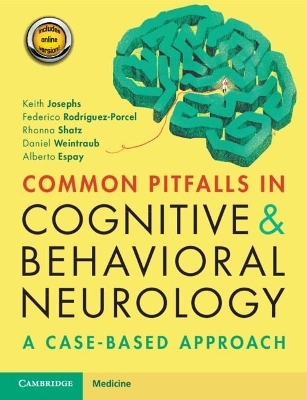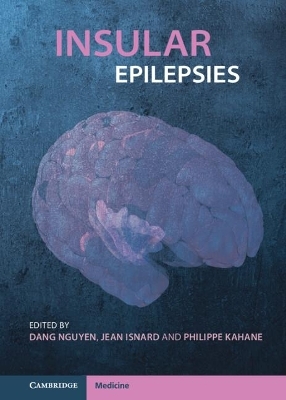
Common Pitfalls in Cognitive and Behavioral Neurology
Cambridge University Press
978-1-108-43113-2 (ISBN)
Clinical case studies are fundamental in cementing theoretical training, especially for neurological disorders where diagnosis can be difficult. This book describes a variety of clinical scenarios associated with either the misdiagnosis or incorrect management of cognitive and behavioral neurological syndromes, identifying common pitfalls, which are discussed in detail. Each case emphasizes the importance of information derived from the patient's history and physical examination in forming a correct diagnosis. Focusing on disorders and presentations that are a frequent source of confusion, key diagnostic principles are illustrated clearly. Questions to the reader move the narrative along logically, whilst highlighting specific aspects of clinical presentation that lead to the correct diagnosis. Videos of patients connect readers to the cases and demonstrate how to avoid diagnostic pitfalls. An online version of the book can be accessed on Cambridge Core, via the code printed on the inside of the cover.
Keith Josephs is Professor of Neurology and Neuroscience and Co-director of the Neurodegenerative Research Group at Mayo Clinic, Minnesota, USA. Federico Rodriguez-Porcel is an Assistant Professor of Neurology in the Movement Disorders and Behavioral Neurology Divisions at the Medical University of South Carolina, South Carolina, USA. Rhonna Shatz is the Bob and Sandy Heimann Chair in Alzheimer's Disease Research and Education and Director of the Cognitive Disorders Clinic at the University of Cincinnati, Ohio, USA. Daniel Weintraub is Professor of Psychiatry and Neurology at the University of Pennsylvania School of Medicine and Psychiatrist at the Parkinson's Disease Research, Education and Clinical Center (PADRECC) at the Philadelphia Veterans Affairs (VA) Medical Center, Philadelphia, USA. Alberto Espay is Professor and Endowed Chair of the James J and Joan A Gardner Center for Parkinson's disease at the University of Cincinnati, Ohio, USA.
1. Missing the Diagnosis Altogether; 2. Misidentifying the Impaired Cognitive Domain; 3. Missing Important Clues in the History; 4. Failure of Pattern Recognition; 5. Difficult to Characterize Cognitive/Behavioral Disorders; 6. Clinical Findings that are Subtle; 7. Misinterpreting Test Results; 8. Attributing Findings to a Known or Suspected Disorder; 9. Missing Radiographic Clues; 10. Management Misadventures.
| Erscheint lt. Verlag | 29.10.2020 |
|---|---|
| Zusatzinfo | Worked examples or Exercises; 30 Halftones, black and white; 4 Line drawings, black and white |
| Verlagsort | Cambridge |
| Sprache | englisch |
| Maße | 190 x 245 mm |
| Gewicht | 450 g |
| Themenwelt | Medizin / Pharmazie ► Medizinische Fachgebiete ► Neurologie |
| ISBN-10 | 1-108-43113-5 / 1108431135 |
| ISBN-13 | 978-1-108-43113-2 / 9781108431132 |
| Zustand | Neuware |
| Haben Sie eine Frage zum Produkt? |
aus dem Bereich


